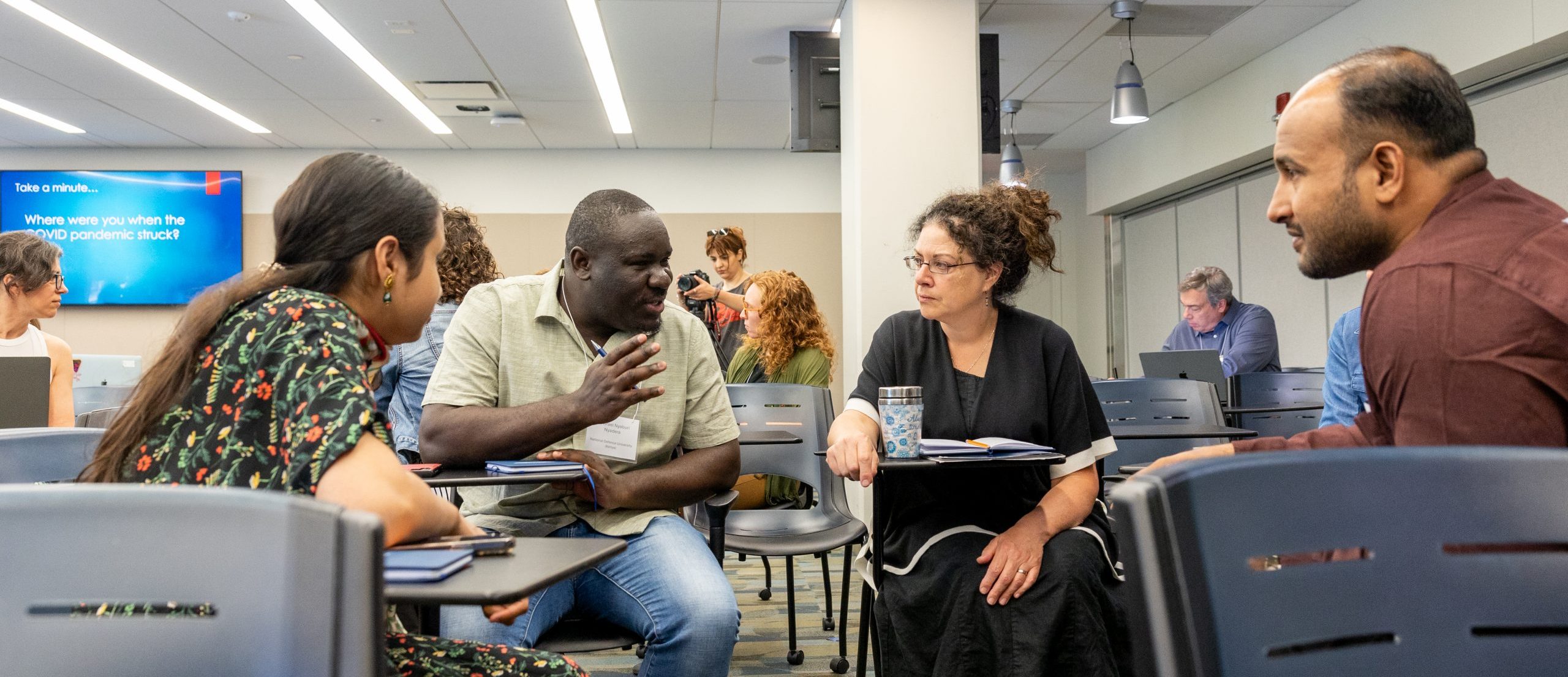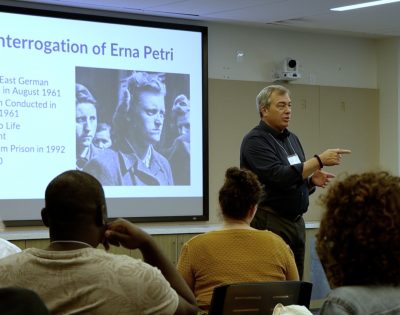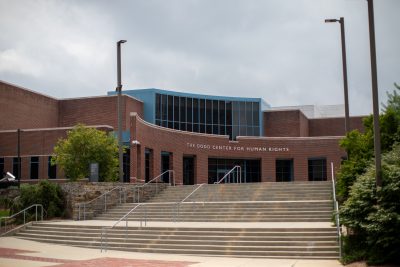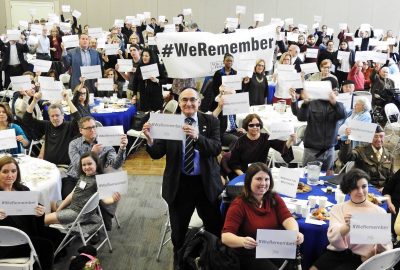Dodd Impact’s Program in Holocaust and Genocide Studies is grounded in the belief that preventing genocide is an achievable goal. There are lessons to be learned, and taught, in preventing genocide from ever taking place, preventing further atrocities once genocide has begun, and preventing future atrocities once a society has begun to rebuild after genocide.


Education and Training
In response to Public Act 18-24, the Connecticut Holocaust and Genocide Education Awareness Act, which requires public schools in Connecticut to provide Holocaust and genocide education to their students, Dodd Impact offers several programs to help advance that unfunded mandate. In addition to training for K-12 teachers, we offer genocide studies and prevention training to higher education, museum, civil society, and government professionals.
- Holocaust and Genocide Studies Post-Baccalaureate Certificate: In collaboration with the Center for Judaic Studies and Jewish Life and faculty in the Neag School of Education, Dodd Impact partners with the Gladstein Family Human Rights Institute to offer a post-baccalaureate certificate for students, educators, and interested community members.
- Professional Development Teacher Trainings: Each semester, we offer several K-12 teacher trainings to assist in professional development related to Holocaust and genocide education. The 3-hour trainings are structured as stacked micro-credentials that do not require a long-term commitment.
- Scheidt Family Seminar on Genocide Studies and Prevention: This annual week-long seminar is aimed at current PhD students and post-docs; secondary school, museum, center, and civil society educators; and government actors. The in-person seminar focuses on the study, research and teaching of genocide prevention across all phases of the conflict cycle and encourages the development of new courses or academic programs in genocide studies and prevention.
Archival Collections and Research
K-12, college/university, and museum educator training in Holocaust and genocide studies is also supported by two related archival collections that help advance research and engagement. Each of these archival projects foster student engagement through related coursework, internships, and Graduate Assistant support:
- Nuremberg Archives: Documentation collected and used by Thomas J. Dodd as Executive Trial Counsel of the U.S. Prosecution team.
- ICTY Digital Archives: The International Criminal Tribunal for the Former Yugoslavia (ICTY) Digital Archives provides access to a range of documents and other records associated with the work of the ICTY. The ICTY Digital Archives is the result of an ongoing collaboration between the Gladstein Family Human Rights Institute and its Dodd Impact Programs, UConn Libraries, Connecticut Digital Archive, and individual scholars, witnesses, and others involved in the Tribunal. The ICTY Digital Archives seek to make the work of the tribunal accessible to researchers, educators, students, and others.


Community and Collaboration
Dodd Impact Programs collaborates with three local community initiatives related to Holocaust and genocide studies. These initiatives open opportunities for student engagement outside of the classroom.
- CT Remembers: The goal of this project, chaired by the Director of Dodd Impact Programs, is for students to hear the voices of survivors of the Holocaust, learn their stories, and then use that information to remember and more easily empathize and act on behalf of people whose identity makes them vulnerable today and in the future.
- Voices of Hope: Founded by descendants of Holocaust survivors across Connecticut, Voices of Hope raises social consciousness by connecting people to the inhumanity of the Holocaust and other genocides through quality educational and community programming in order to ensure future generations never forget.
- Jewish Hartford: European Roots: This project supports lectures, field trips, adult learning, youth education, and other programming about Jewish life in Europe.